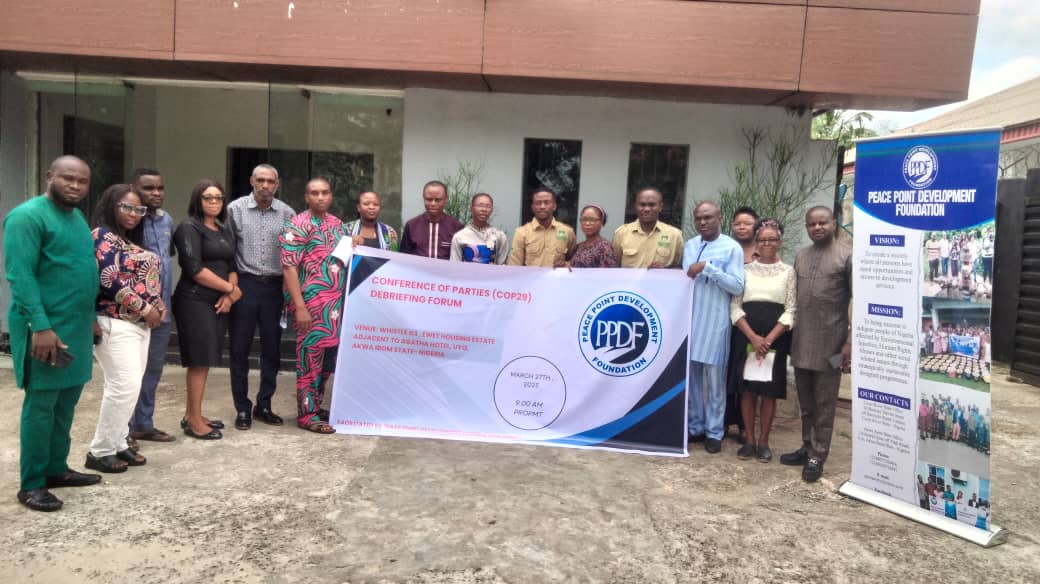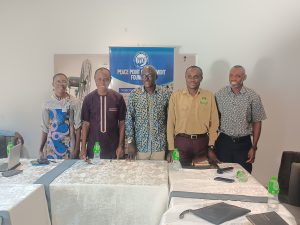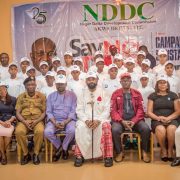PPDF, Stakeholders Demand localization of climate change law, Climate Responsive Budget by State Governments

By Ekemini Simon
Peace Point Development Foundation (PPDF) and stakeholders in the environmental sector have called on State Governments in Nigeria to localise climate change law and also ensure their budget responds to climate issues.
The call was contained in a communique issued on Thursday at the end of CoP29 debriefing meeting held in Uyo by Peace Point Development Foundation.
The participants said besides the need for State governments to localise climate change laws, they should also ensure policy linkages from previous COPs attended by the government together with sub national policies and Nigeria’s National Determined Contributions (NDC), Health, Agriculture, Environment, Industrial and Water Sanitation and Hygiene.
They said the State Governments in formulating a climate responsive budget, should first understand climate impact in the state and address that through appropriate budgeting.
The gathering called on the Civil Society Organizations to sensitize people at the grassroots level to make demands from governments and companies on responsible climate actions.
Participants agreed that there is a need for routine review of the Sustainable Green Development Roadmap of the State Ministry of Environment and also increase collaboration between the Ministry of Environment and CSOs for joint action plan and participation for COP 30.
Part of the recommendation reads ” The World Bank should be removed from hosting the Loss and Damage funds of the COP. State Governments should put up a transparent and accountable mechanism to receive the loss and damage fund for vulnerable communities at the frontline of climate impact.

“Push for the implementation of Oil and Gas company’s gas flare elimination master plan. Demand for companies to publish their sustainability reports where their carbon footprints and mitigation plans/implementation are clearly stated.
Civil Society Organizations should make strong demands that fossil fuel corporations are not present at the COPs nor even fund it. State development should be guided by climate resilient practices.”
Earlier in the resolution of the meeting, the participants noted that Akwa Ibom State is at the Frontline of climate impact due to its boundary with the Atlantic Ocean, hence climate change must be taken seriously by the State government.
Participants said the State is seriously affected by the impact of climate change with a disturbing temperature and sea level rise affecting coastal communities like Itak Abasi, in Ibeno Local Government Area which has been submerged by the ocean.
They decried that despite the many climate challenges faced by communities, there is limited actions on Climate change in the State government ARISE Agenda and other Government programmes.
The gathering expressed concern over continuous flare of gas by fossil fuels companies emitting carbon and methane which further contributes to climate change.
Addressing climate issues globally, the participants said the United States withdrawal from the Paris Agreement is an injustice against the world.
They said the 300 billion dollar for climate finance funds is a short fall of the 1.3 trillion dollars expected at COP 29.
Participants noted that it is not right for the World Bank to host the Loss and Damage funds being that it has been financing fossil fuel extraction.
They added that there is progressive increase of corporations influencing and funding the COPs and this should be curtailed.
Earlier, the Coordinator of PPDF, Comrade Umo Isua-ikoh in his opening remarks said the meeting objective was to disseminate COP29 outcomes and their implications for Nigeria’s policies and priorities, identify actionable steps to mobilize climate finance, enhance adaptation measures, and meet Nigeria’s NDCs (Nationally Determined Contributions).
He said the meeting was also designed to encourage collaboration among government agencies, private sector actors, and civil society to accelerate climate action and most importantly gather recommendations for COP30
The Coordinator of PPDF explained that COP29, held in Baku, Azerbaijan (November 2024), which centered on accelerating climate finance energy transitions, adaptation frameworks and the key outcomes included: Climate Finance with an Agreement on the New Collective Quantified Goal (NCQG) to replace the $100B/year pledge, vital for Nigeria’s mitigation and adaptation projects.
Others included Loss and Damage Fund which addresses the operationalization progress for addressing irreversible climate impacts in vulnerable nations like Nigeria, Global Stocktake which calls for enhanced NDCs by 2025, urging Nigeria to revisit its climate targets and Energy Transition and Adaptation which emphasized equitable transitions from fossil fuels, renewable energy scaling, and frameworks for climate resilience—issues central to Nigeria’s energy security and vulnerable sectors (e.g., agriculture, coastal communities).
He said as a nation disproportionately affected by climate change, from flooding displacing millions to desertification threatening livelihoods—Nigeria’s active engagement at COP29 reinforced its demand for fair financing, technology transfer, and inclusive climate governance.







